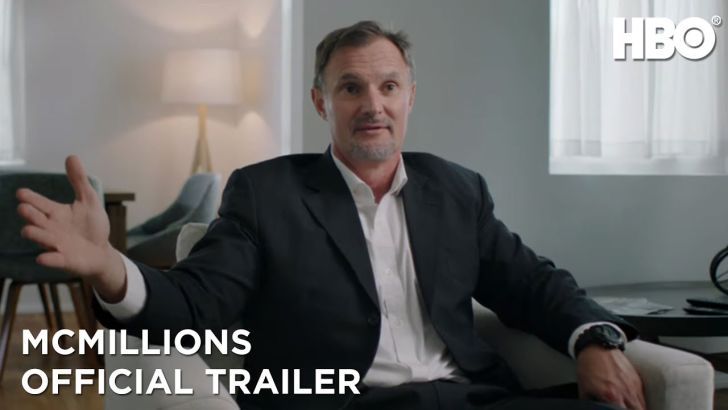Do Not Pass Go: McMillion$ and Journalism's Big Payday
HBO's new docu-series goes in-depth on a 2018 viral article in The Daily Beast. It shares some production DNA with an Academy Award-winning film.

If you’re not following along with HBO’s McMillion$, the six-part docu-series about the man who rigged the McDonald’s Monopoly game, and the FBI investigation that brought him and a sprawling criminal conspiracy down, you’re missing out. Tonight, Episode 4 will air, and the previous three hours have been a lot of fun.
The brief description of the series is as follows: McDonald’s immensely popular Monopoly Game was rigged by the an ex-cop who stole the winning game pieces and sold them to friends and associates for over a decade.
True crime stories are addicting for a number of reasons, but perhaps this one resonates so much because the game was everywhere. In our whiniest moments, maybe we’d lament yet another non-winning ticket and suggest the whole thing was rigged. “Is there even a winning ticket out there?” At some point, we all wondered, no matter how unlikely a winning ticket might have been. But, in a very real way, the surprising answer to this question was, for over a decade, “No, there aren’t any winning tickets out there because this man stole them.” Now, I, like so many others of you out there, are a part of the story. It’s a minor connection, sure; maybe you don’t even care or don’t feel aggrieved at the scam. But so many incredible stories feel abstract, too far removed from the day-to-day of our lives, but not this one, and that connection makes for good television.
Wait a minute…maybe you’re not watching because you’re not an HBO subscriber. That’s OK; fear not, there’s a solution for you. Perhaps the best thing about the series from my viewpoint is that the whole thing is made possible by the intrepid reporting of Jeff Maysh, a freelancer who broke the story for The Daily Beast back in 2018. The article’s subhead gives a taste of what’s ahead: “Jerome Jacobson and his network of mobsters, psychics, strip-club owners and drug traffickers won almost every prize for 12 years, until the FBI launched Operation “Final Answer.” You can read it here:
How Ex-Cop Jerome Jacobson Rigged McDonald’s Monopoly Game and Stole Millions
And read it, you should! It’s a serious piece of longform journalism at roughly 9,000 words; it’s no breezy two-minute read. It did, however, take Maysh two years (!) to report. But once you dig in, Maysh’s cinematic presentation of the stranger-than-fiction details of this story propel you forward because every new revelation feels more unbelievable than the previous ten. The cinematic nature of the story shouldn’t come as a surprise; the person who gave Maysh the tip about the story is David Klawans, a film producer who tipped off journalist Joshuah Bearman off to the story that would be a Wired magazine article that inspired the Academy Award-winning film “Argo.”
The great thing about the HBO treatment of the same story is the time the flesh out more of the characters. The first episode follows the lede of the story fairly closely, but it adds an FBI agent, Doug Matthews, who wasn’t mentioned by name in the article. His war stories of the investigation are a blast to listen to, and his maverick, fly-by-the-seat-of-his-pants style will certainly evoke strong opinions. You’ll either love him or hate him, but you won’t be able to take your eyes off of him, so magnetic is his charm. There’s a “can this really be how things work?” quality to his stories, but they all seem to be backed up by the other interview subjects.
More than the extended amount of time we get to spend with the characters of this bizarre tale, perhaps the most exciting thing is the exposure that it generates for incredible longform journalism. I haven’t seen Maysh’s name mentioned anywhere in HBO’s telling of the story. He still might show up at some point (I sincerely hope he does), but the docu-series is not about his reconstruction of the story; it’s about the story itself. Maysh’s reporting is a testament to the profession, and it’s a great example of how powerful these stories can be.
It’s the definition of a “Holy Shit!” story. — Max Linsky, host of Longform Podcast
I don’t write stories that aren’t bangers. — Jeff Maysh
I wholeheartedly recommend Maysh’s interview on the Longform podcast, because it really dives into the mechanics of not only the reporting, but the process that led to story’s film rights being optioned for $1 million! Listen to it if you’re a fan of behind-the-scenes revelations. Listen to it if you’re simply a fan of the use of the word “bangers.”
Listen to it if you’re a fan of how journalists find their stories. Listen if you want to be inspired by dedication of a writer pursuing his journalistic dreams while still working a full-time non-journalism job. A great story is a great story, and by reading the article and listening to this podcast, you get two for the price of one.
Dive Deeper:
From the remarkable success of critically acclaimed shows like Chernobyl and Watchmen, HBO has tapped into the behind-the-scenes aspect of its storytelling by issuing companion podcasts. Those for the two shows I just mentioned are incredible; if you haven’t already, check out the shows and then listen to the podcasts. I mention that because McMillion$ is following that same approach, and you can listen to the podcasts for each episode here at these fine podcast platforms: Spotify, Apple Podcasts, or my personal favorite, PocketCasts.
If you liked what you read, please sign up, follow me on Twitter (@CaryLiljohn06) and then forward to friends to help spread the word.
Comments